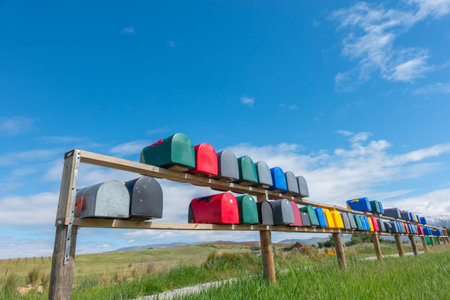Smart Folding Furniture Essentials
When it comes to making the most of limited space in small British campers and caravans, smart folding furniture is absolutely indispensable. The unpredictable British weather means you’ll want interiors that are not just comfortable, but also highly adaptable. Look for folding chairs and tables specifically designed for compact living—think robust aluminium frames, weather-resistant fabrics, and quick-lock mechanisms that let you pack up or set up in seconds. Opt for multipurpose pieces such as fold-down wall tables, nesting stools, or ottomans with hidden storage beneath. Don’t overlook classics like a drop-leaf table or a bench that tucks neatly under when not in use; these solutions have been proven on the narrow lanes and rugged coastlines of the UK. Prioritise furniture that can be stowed away easily in tight corners or under bunks—every inch counts when touring Cornwall or pitching up in the Lake District. Selecting the right folding essentials means your camper remains a welcoming retreat whatever the weather throws at you.
British-Made Innovations for Tight Spaces
When it comes to making the most of limited space in small British campers and caravans, nothing beats locally designed folding furniture and multi-use solutions. British manufacturers have a long history of crafting durable, weather-resistant products tailored for our unique climate—think persistent drizzle, sudden cold snaps, and the ever-present muddy boots. In this section, we highlight some of the best homegrown innovations that deliver both comfort and practicality without sacrificing precious square footage.
Clever Folding Furniture Solutions
British brands like Outwell, Quest, and Kampa have become household names for their compact yet robust designs. From collapsible dining tables that tuck away behind seats to beds that convert into sofas with a single motion, these products are engineered for real-world British touring conditions. Take a look at how typical folding furniture options compare:
| Product | Main Use | Folding Mechanism | Weather-Resistant Features | Where to Buy (UK) |
|---|---|---|---|---|
| Kampa Dometic Folding Table | Dining/Work Surface | Legs fold flat under tabletop | Waterproof resin top, rust-proof aluminium frame | Go Outdoors, Millets, Halfords |
| Outwell Blackpool Chair | Lounge Seating | Telescope-style collapse into carry bag | UV-resistant fabric, reinforced feet for muddy ground | Cotswold Outdoor, Blacks |
| Quest Elite Roll Top Cupboard | Storage & Prep Surface | Roll-up fabric shelves, quick-fold aluminium frame | Mould-resistant polyester panels | Towsure, Camping World UK |
| Thetford Porta Potti Cube Stool | Loo & Extra Seat/Step | Lid closes flush; doubles as seat or footstool | Splashproof plastic, anti-slip base | B&Q, Argos, Amazon UK |
Multi-Use Furniture: Doing More with Less
The magic of British-designed camper furniture lies in its versatility. For example, ottomans double as hidden storage bins for wet coats or muddy shoes—a must after a rainy hike on the Moors. Wall-mounted drop-leaf tables can serve as both breakfast bars and evening workspaces. Even bunk beds now incorporate slide-out drawers beneath the mattress for extra kit.
Why Local Matters: Built for Our Weather and Needs
Imported gear often fails when faced with British weather—flimsy joints buckle under dampness or fabrics rot in constant drizzle. That’s why investing in homegrown kit pays off. Home manufacturers focus on details like reinforced stitching, non-rusting fastenings and easy-to-clean materials. In short: British gear is built by those who camp here themselves.
![]()
3. Ingenious Storage and Packing Hacks
If you’re squeezing every inch of usable space from your compact British camper or caravan, clever storage isn’t just nice to have—it’s survival. The key is ruthless organisation, using every available nook without creating chaos. First, embrace the overhead compartments: install netted hammocks or soft-sided bags above head height for lightweight kit like hats, scarves, or maps. Don’t let these become black holes; keep everything categorised and labelled to avoid frantic scrambles in the rain. Under-bench storage is gold dust—opt for modular crates or stackable boxes that slide out easily, keeping essentials like cooking gear or boots within arm’s reach but out of sight. For a truly hard-edged approach, ditch anything you haven’t used in the last two trips. Slimline compartments, such as behind seat-backs or inside wardrobe doors, are prime real estate for folding chairs, collapsible tables, and even fishing rods. Use vacuum bags for bulky bedding and clothing—compress, stash under the bed or in roof lockers, and reclaim vital cubic inches. Above all: never pack loose items. Secure everything with bungee cords or non-slip mats, so nothing turns into a missile on the winding roads through Snowdonia or the Lake District. Live by the mantra: if it can move in transit, it shouldn’t.
4. Setting Up Your Cosy British Base
When it comes to small campers and caravans, every square inch counts. Transforming your interior from a snug sleeping area to a sociable living or dining space requires both clever kit and a methodical approach. Here’s your step-by-step guide for efficiently reconfiguring your home-on-wheels, while adhering to that all-important UK campsite etiquette.
Swift Morning Transformation: Bed to Breakfast Nook
Begin by folding away bedding and mattresses into their designated storage—many British caravans now come with under-seat compartments or dedicated bed lockers. Next, deploy fold-out tables and chairs; these can be wall-mounted or stored in roof lockers when not in use. If you’re using a rock-and-roll bed or convertible dinette, ensure the mechanism is clear of obstructions for quick setup.
| Furniture Type | Setup Time | Storage Location |
|---|---|---|
| Fold-down Table | Under 1 min | Wall bracket/Behind seat |
| Slimline Chairs | Under 1 min | Roof locker/Under bench |
| Convertible Bed/Dinette | 1-3 min | N/A (integral) |
Clever Storage: Stow It, Don’t Show It
Tidy up soft furnishings, slippers, and sleeping bags into vacuum bags or multi-use ottomans. Keeping your space uncluttered not only maximises room but also prevents tripping hazards—a must on a rainy British morning when boots and wellies multiply at the door.
Respecting Neighbours: Campground Etiquette Essentials
The British camping scene values quiet mornings and tidy pitches. When transforming your space, keep noise to a minimum—avoid slamming locker doors or dragging furniture across floors. Dispose of waste discreetly and never block communal paths with gear or awnings. Always greet neighbours with a friendly nod or “morning!”—it’s the British way.
Quick Checklist for Cosy Setup Success:
- Bedding stowed and secured
- Tables/chairs deployed quietly
- Kettle filled (never underestimate the power of a proper brew)
- Windows cracked for ventilation—but zipped back up if rain threatens!
- Main walkway kept clear for those midnight loo dashes
With these tips, you’ll have your compact camper ready for breakfast, board games, or a classic British tea in no time—all while keeping things orderly and neighbourly at any UK site.
5. Weatherproof Solutions for Year-Round Use
If you’re venturing across Britain in a compact camper or caravan, the weather is your constant companion—sometimes a friend, often a foe. From driving coastal rain to chilly Highland mists, the UK’s climate demands more than just clever space-saving; it calls for kit that can withstand the elements. Here’s how to keep your small home-on-wheels both practical and protected all year round.
Choose Materials that Stand Up to the Elements
When selecting folding furniture, look for frames made from powder-coated steel or rust-resistant aluminium—these shrug off persistent damp and won’t corrode after a few soggy weekends in Cumbria. Waterproof fabrics are non-negotiable: opt for heavy-duty polyester with reinforced stitching. For table tops or work surfaces, high-pressure laminate or marine-grade plywood will handle everything from spilled tea to an unexpected downpour.
All-Weather Accessories Worth Packing
No British camper setup is complete without some hardy accessories. Invest in stackable storage crates with sealed lids to protect food and gear from condensation and pests. Collapsible washing lines fashioned from UV-resistant cord are ideal for drying kit even during brief sunny spells. And don’t overlook a fold-flat rubber doormat—essential for muddy boots after a trek on Dartmoor.
Smart Solutions for Wet Gear
Rain is inevitable, so integrate dedicated drying racks or hanging rails inside your van or awning. Many brands now offer compact, fold-away shoe racks and coat hooks designed specifically for tight spaces—perfect for airing out kit overnight without cluttering up living space.
Keeping Cosy Whatever the Forecast
For colder months, seek insulated folding chairs with built-in windbreaks and waterproof undersides. A packable thermal blanket that doubles as a seat cover can make all the difference on frosty mornings. Look out as well for folding windshields that can be quickly deployed outside your awning—these create a sheltered nook for cooking or sitting out, whatever the weather throws at you.
The right weatherproof folding furniture and accessories won’t just save space—they’ll let you camp in comfort wherever the road (and British weather) takes you.
6. Keeping It Tidy: Organisation with a British Touch
When space is at a premium, as it so often is in small British campers and caravans, keeping things shipshape isn’t just about aesthetics – it’s a matter of survival. Classic British orderliness meets hard-nosed practicality here. Invest in folding storage crates that tuck away neatly beneath benches or beds; they’re perfect for stowing everything from wellies to Yorkshire tea tins. Magnetic spice racks and collapsible utensil holders keep your galley uncluttered, while over-door organisers make use of every inch without sacrificing that essential sense of tidiness.
A Place for Everything, and Everything in Its Place
Channel the spirit of an old-school British butler: label storage bins and use colour-coded bags for kit separation – one for wet gear, another for dry essentials. Pegboards with hooks inside cupboard doors offer a time-honoured way to hang everything from torches to car keys. For paperwork like maps and campsite bookings, a concertina file can be slipped into the glove box, keeping British bureaucracy at bay.
Clever Use of Dead Space
Don’t let nooks and crannies go to waste. Under-seat storage pouches are ideal for books or board games (because what’s a British trip without a rainy-day Scrabble session?). Overhead hammocks stitched from sturdy canvas keep bedding off the floor and out of sight by day. Even the humble washing-up bowl can serve double duty as a catch-all container when not in use.
Modern Survival Know-How Meets Classic Order
Stash emergency supplies – torch, first aid kit, tyre inflator – in labelled, transparent containers so you’re never caught on the hop. Keep a compact broom clipped behind the door and a microfibre cloth handy; you’ll be ready to sweep out mud after a brisk walk on the Downs or mop up spilled tea before it stains the lino. In true British fashion, take pride in your set-up: being prepared isn’t just practical, it’s part of the adventure.


